Curriculum Policy
Common Policy
Through providing language education, the Department of Japanese Language Education will foster students who continue to think together to build a society where diversity is respected. Specifically, students are encouraged to:
1. Continue to learn autonomously and creatively
- Acquire a broad range of knowledge
- Manage their own learning
2. Appropriately use information
- Use ICT (information communication technology) and other means, to collect information appropriately
- Evaluate and analyze information critically from multiple perspectives
3. Collaborate while respecting others
- Respect and try to understand ideas that are different from his/her own, and be flexible
- Work together for a common purpose
Curriculum policy
The Japanese Language Program enables international students to choose courses based on their language proficiency and learning goals. The program includes structured Japanese language courses focusing on listening, reading, speaking, and writing skills, while Japanese Affairs courses enhance students’ understanding of Japanese society. These courses are systematically organized so that students can study step by step.
- Japanese Language courses provide activities for the students to deepen their thinking and develop their learning skills. Japanese Affairs courses provide lectures for students to obtain a wide range of knowledge about Japanese society, and project work to allow each student to address the issues and disseminate the results.
- We provide activities for students to obtain and use information actively and appropriately. Furthermore, to master the skills to disseminate information, we offer opportunities for presentation and poster sessions.
- We offer students collaborative group work to develop the mindset and problem-solving skills needed while valuing the diverse opinions of others.
Instructors
Assoc. Prof. Yoko Kuwabara
Research Map Researcher Information
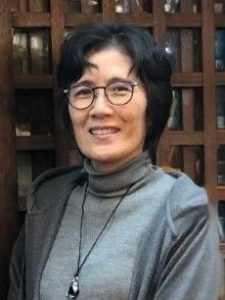
Field of Expertise / Interest
Education of Japanese Language as a Second Language, Analysis of Reading Process
Message
My research theme is to clarify the difficulties in learning Japanese as a second or foreign language and what kind of support is necessary to overcome these difficulties. I am particularly interested in reading comprehension support and am conducting a long-term study of learners’ reading comprehension process.
To international students, let’s enjoy studying Japanese together. To native speakers of Japanese, if you are interested in supporting Japanese language learning, please visit my office.
Assoc. Prof. Aya Sato
Research Map Researcher Information
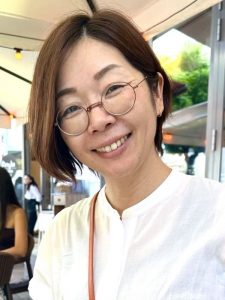
Field of Expertise / Interest
Japanese language education, Career development
Message
When you come to the University of Fukui, you will not only study the Japanese language, but also meet many new people and have plenty of fun. I hope that your experiences in Fukui will enrich your life.
Snr. Assis. Prof. Jingyi Li
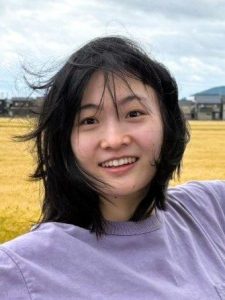
Field of Expertise / Interest
Teaching Japanese as a second language, Second Language Acquisition, Psycholinguistics
Message
I study how people who learn Japanese as a second language understand spoken Japanese and what methods or skills can help them remember words and sentences more effectively. I try to find the reasons behind the difficulties learners face and give clear, evidence-based explanations.
Learning Japanese is not just about language. It is also a way to learn about Japanese culture and society. Through language study, learners can make new discoveries. Meeting people from different language and cultural backgrounds is also an important step for personal growth.
Part-time Instructor Chiemi Ono
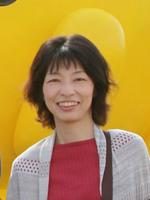
Field of Expertise / Interest
CLIL, Course Design
Message
Hello to everyone who is considering studying abroad in Fukui.
By learning Japanese, you can broaden your horizons by experiencing the cultures and ways of thinking of other countries and regions.
We hope you will learn many things in Fukui, a city rich in nature.
Part-time Instructor Tomoyo Ogata
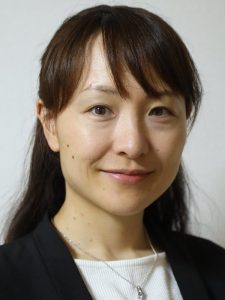
Field of Expertise / Interest
Japanese Language Education, Japanese for Care Worker Training, Japanese–Chinese Interpreting and Translation: Theory and Practice
Message
I have taught Japanese in both Taiwan and Japan.
Studying interpreting and translation reminded me that intercultural communication requires not only language skills, but also an understanding of culture and customs.
This perspective shapes how I teach Japanese today.
Language learning expands our world and helps us reflect on ourselves and our culture.
I look forward to supporting your Japanese learning journey.
Part-time Instructor Masumi Saito
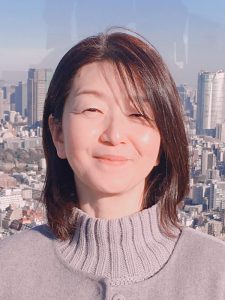
Field of Expertise / Interest
Teaching Japanese as a second language
Message
Welcome to Fukui, international students!
The University of Fukui is rich in nature and offers a calm environment for learning. Here,I hope you not only learn Japanese but also experience many different cultures.
Exchanging ideas about different cultures is something I truly enjoy. I’m looking forward to meeting each of you. I hope your study abroad experience will be a fruitful and meaningful one.
Part-time Instructor Yukie Sawazaki
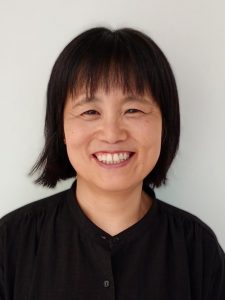
Field of Expertise / Interest
Japanese Education
Message
Welcome to Fukui, everyone!
There are many different reasons you may have become interested in the Japanese language—such as Japanese history, anime, or food. Learning Japanese can be challenging, but I encourage you to actively use the language not only in class but also around campus and in the community to improve your skills. If you have any questions, please don’t hesitate to ask me.
Let’s enjoy studying Japanese!
Part-time Instructor Maki Yamada
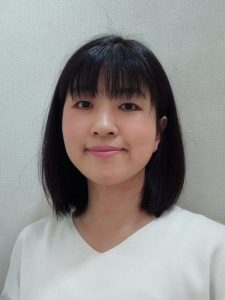
Field of Expertise / Interest
Communication, Grammar, Intercultural Coexistence
Message
If you can talk in Japanese, it’s going to be more fun!
Let’s enjoy studying together.
Part-time Instructor Nana Kotani
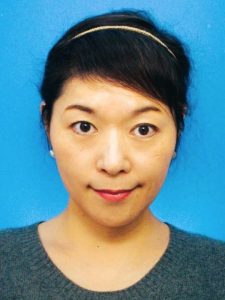
Field of Expertise / Interest
I am interested in Japanese language education and teaching method for learners such as international students, children, and refugees
Message
I believe that learning a new language is not only a chance to learn about a country’s history and culture, but also an opportunity to get to know people and to encounter new people and new things.
Through studying Japanese, I hope you will deepen your interests and discover many new opportunities.
Part-time Instructor Satoko Takinami
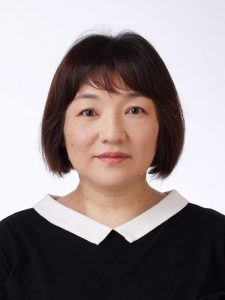
Field of Expertise / Interest
Japanese Education
Message
Hi, everyone!
In my classes, I aim to teach students how to use Japanese language skills to help them live in Japan.
I hope that learning Japanese will open the door to a new world for you.
Let’s have fun learning Japanese together.
Classes for International Students
1.Japanese Language Program
Students who wish to take any of the following courses should take the placement test offered at the beginning of the semester. Based on the result, the student will be placed in the appropriate class.
International Student Categories and Japanese Courses
〇: Elective course
△: Before registering for courses, students are required to receive approval from teachers of Japanese 3.
| Exchange Program A | Exchange Program B | Undergraduate Students (Regular students) | Graduate Students (Regular students) | Research Students | Japanese Studies Students | |
|---|---|---|---|---|---|---|
| Japanese 1 | 〇 | 〇 | 〇 | |||
| Japanese 2 | 〇 | 〇 | 〇 | |||
| Japanese 3 | 〇 | △ | 〇 | 〇 | △ | |
| Japanese 4 | 〇 | 〇 | 〇 | 〇 | 〇 | 〇 |
| Japanese 5 | 〇 | 〇 | 〇 | 〇 | 〇 | 〇 |
| Level | Course Name | Notes |
|---|---|---|
| Japanese 1 (Beginner) | Integrated Japanese 1 | 4 classes per week |
| Reading 1 | ||
| Speaking 1 | ||
| Writing1 | ||
| Kanji1 | ||
| Japanese 2 (Lower intermediate) | Integrated Japanese 2 | 4 classes per week |
| Reading2 | ||
| Speaking2 | ||
| Writing2 | ||
| Kanji2 | ||
| Japanese 3 (Intermediate) | Integrated Japanese 3 | 4 classes per week |
| Reading3 | ||
| Writing3 | ||
| Japanese 4 (Upper intermediate) | Japanese A | Speech |
| Japanese B | Conversation | |
| Japanese C | Report-writing | |
| Japanese D | Report-writing | |
| Japanese 5 (Advanced) | Japanese E | Discussion |
| Japanese F | Presentation | |
| Japanese G | Reading & Writing | |
| Japanese H | Reading & Writing |
2.Studies of Local Communities and Japanese Culture
These courses are lectures on local communities and Japanese culture.
University of Fukui Student Exchange Program A
Course requirements: Students of University of Fukui Student Exchange Program A
| Course Name | Notes |
|---|---|
| Japanese Affairs | Japanese 4Japanese 5 |
| Japanese Culture | Japanese 4Japanese 5 |
| Multiculturalism in Japan: Practices and Challenges A | Japanese 4Japanese 5 Joint classes with Japanese students |
| Introduction to Intercultural Communication A | Japanese 4Japanese 5 Joint classes with Japanese students |
| Project Work for International Students 1 | Japanese 4Japanese 5 |
| Project Work for International Students 2 | Japanese 4Japanese 5 |
| Traditional Industries | Lectures in English |
General Education
Course requirements: Students of University of Fukui Student Exchange Program B, undergraduate students (regular students)
| Course Name | Notes |
|---|---|
| Japanese Affairs | Japanese 4Japanese 5 |
| Japanese Culture | Japanese 4Japanese 5 |
| Multiculturalism in Japan: Practices and Challenges | Japanese 4Japanese 5 Joint Classes with Japanese students |
| Introduction to Intercultural Communication | Japanese 4Japanese 5 Joint Classes with Japanese students |
| Project Work for International Students 1 | Japanese 4Japanese 5 |
| Project Work for International Students 2 | Japanese 4Japanese 5 |
3.Intensive Japanese Program
This is a six-month (October through March) intensive Japanese language training course for overseas students who are awarded a Japanese government scholarship, and who will attend one of the graduate schools of the University of Fukui, or another university in Fukui prefecture or the surrounding areas.
| Course Name | Notes |
|---|---|
| Japanese | Based on the result of the Japanese language placement test, each student is placed in one of Japanese 1, 2, 3, 4, or 5. The example below shows the Japanese classes for Japanese 1. Ex. Integrated Japanese(4 classes per week), Reading1, Speaking1, Writing1, Kanji1 |
| Completion Research | 2 classes per week The objective of this class is to make posters and write manuscripts in Japanese, for the poster presentation during the round table session at the end of the course. |
| Completion Research Seminar | The objective of this class is to prepare for the poster presentation, including explanations about posters, and questions and answers in Japanese. |
| Experience of Japanese Culture | This class is conducted jointly with the UFSEP course Traditional Industry. There are five fieldwork sessions during the semester. In this class, students learn about traditional industries of Fukui Prefecture, such as Echizen pottery and Sabae glasses. |
Completion Reports
Poster of Round Table Session
- AY 2018 Guatemala
- AY 2019 Myanmar
- AY 2020 Gua Musang (Malaysia) Battambang (Cambodia) Malaysia
- AY 2022 Myanmar Mexico Guatemala
- AY 2024 Argentina Malaysia Philippines
Class Timetable
For Those Wishing to Take the Japanese Language Program
Program Participants
The Japanese Language Program is intended for international students and students who do not speak Japanese as a native language, and who are enrolled at the University of Fukui.
For international staff members registered at the University of Fukui and their families, please click here.
Placement Tests
If you are taking courses in the Japanese Language Program, please ensure that you take the placement test conducted before the semester begins. Students who have taken courses in the Japanese Language Program during the previous semester, and those who are continuing the program, do not need to take a placement test. If this applies to you, please complete the necessary procedures for continuing your study at the International Affairs Division.
Course Decisions
The results of the placement test conducted before the start of the semester determine which course(s) you may attend. If you feel that the level of the course(s) assigned to you is unsuitable, please consult with a teacher in the Japanese Language Education Department within one week of the start of the semester. Changing courses requires the permission of a full-time faculty member in the Japanese Language Education Department.
Attendance Requirement
Attendance of at least two thirds of the total number of lessons is required to pass a class.
Grading
Grading methods vary by subject. Please make sure to review the syllabus.
A grade of less than 60% counts as a failing grade.
Continuing Course Participation
Students who pass will be able to take courses one level higher during the next semester.
Students who do not pass will only be able to take the same courses during the next semester.
Issuing of Transcripts
Transcripts of grades received for courses in the Japanese Language Program are generally not issued. However, if a transcript is necessary, please indicate the reason the transcript is being requested, as well as the intended recipient of the transcript, then consult with a full-time faculty member of the Japanese Language Education Department.
Handling of Misconduct in Examinations and Assignments
If there is a case of misconduct in an examination or assignment for a course in the Japanese Language Program, it will be dealt with according to the Standards for Treatment of Misconduct Cases during Examinations for Japanese Language and Japanese Affairs, and for Traditional Industries under the University of Fukui Student Exchange Program.
Consultations / Inquiries
If you have any questions about the Japanese Language Program and studying Japanese, please contact the staff of the Japanese Language Education Department or the International Affairs Division.
- Japanese Language Education Department:nihongokyoiku@ml.u-fukui.ac.jp
- International Education, International Affairs Division:inbound@ml.u-fukui.ac.jp
Application for Japanese Language Program for International Staff and Family Members
For international staff enrolled at the University of Fukui and their family members, and family members of international students, please refer to the following documents and submit an application form to the International Affairs Division.
- 日本語プログラム受講申請書(家族用)
Application Form for Japanese Language Program for Family Members - 日本語プログラム受講申請書(教職員用)
Application Form for Japanese Language Program for International Staff




